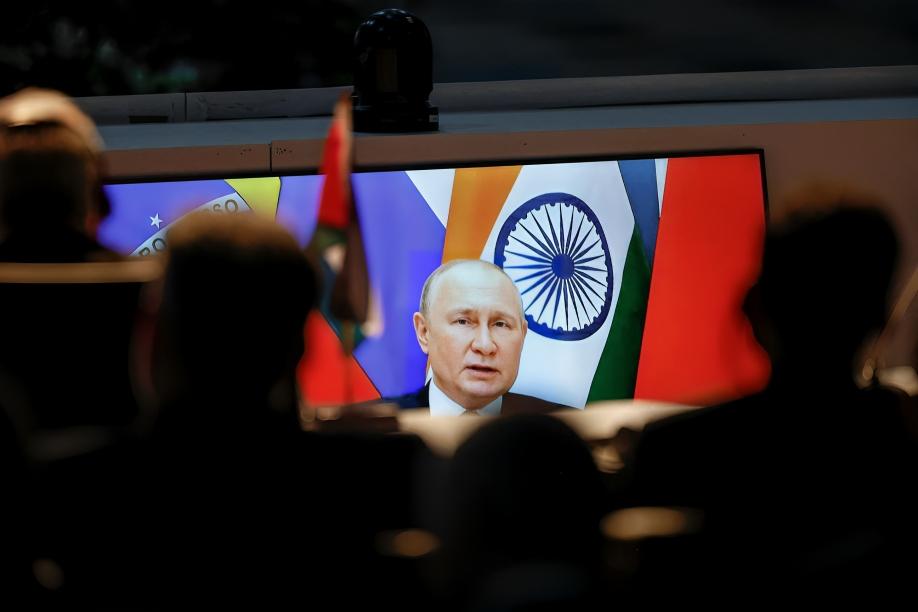Does the BRICS expansion mean the dawn of a new world order? Alternative economic, geopolitical power
In January 2024, during the BRICS leaders’ council meeting in Johannesburg, a historic decision was made to expand the organization by admitting five new member countries: Egypt, Ethiopia, Iran, Saudi Arabia, and the United Arab Emirates (UAE). Even before its recent expansion, it accounted for 26% of the global GDP and 40.8% of the global population as a group of high-growth emerging economies.
The BRICS group of emerging countries was formed in 2006 by Brazil, Russia, India, and China, with South Africa joining in 2010. As an interregional organization extending beyond conventional definitions, it encompasses regions where Eurasia, Asia, Latin America, and Africa converge. The BRIC’s rise as an “alternative economic and geopolitical power” after 2010 drew skepticism and hope, whether it could be a leading global non-state actor with unprecedented economic and political abilities.
However, in terms of geopolitical axis, BRICS did not fulfill expectations of becoming a powerful axis led by Russia and China against the collective West led by the United States (US). The long-term confrontation between the two main polarists heightened with Russia's invasion of Ukraine in 2022 and deepening ties between the Iran-Russia-China axis.
Being subject to international condemnation and pressure, Russia and its strategic partner China developed a different strategy to minimize economic and trade damage resulting from imposed sanctions.

As such, the BRICS is a viable platform to implement ambitious plans of walking away from the Western-dominated world. For example, in 2023, the BRICS countries actively promoted the idea of “de-dollarization" of all trade operations, as Brazil's president called for BRICS nations to adopt a common currency for trade and investment with each other.
However, in the early stage, the de-dollarization option seemed impossible due to the limited economic power of the BRICS. Indeed, such a perspective may be the core reason behind BRICS's strive to expand its ranks. From a financial point of view, the new membership will generate an additional $2.6 trillion in GDP terms, representing an overall BRICS economy of $28.5 trillion and 28.1% of global output.
However, many argue that the number is still insignificant for BRICS to ensure dominance over the G7 platform comprising the world's leading economic powers. The mediocre collective performance of the BRICS reflects many factors; their economies are hardly similar. But in part, it likely stemmed from the problematic quality of their internal governance.
Notwithstanding, BRICS does not limit its ambitions of economic and political expansion. Indeed, expansion signifies an important move in the attempt to reshape the global order into a multipolar world with voices from the Global South. The joining of Iran, Saudi Arabia, and the UAE to BRICS will also have political ramifications regarding confrontation with the US and NATO partners.
Currently, the stakes are high, particularly amid simmering tensions in the Middle East, particularly in light of the Israel-Hamas war and worsening skirmishes between US troops and Iranian-backed militias. Moreover, while enlargement has expanded the BRICS's economic power and geostrategic reach, the BRICS face a number of domestic and geopolitical challenges, which will limit both deeper integration and, ultimately, the group's ability to shift the balance of global power in their favor.

Consequently, it will be tough for BRICS to accommodate both Iran and Saudi Arabia, long-term regional foes, within the BRICS and adopt a unique economic strategy in an effort to confront the G7 platform. Although Iran and Saudi Arabia reached a détente in March 2023 following China's mediation efforts, it is still arguable to what extent the bilateral reconciliation would remain efficient within the BRICS format.
Furthermore, India and China, the leading global economic powers, remain hostile toward each other, though their standoff is less complex than others.
Eventually, this factor may explain earlier reports regarding India’s objection to the BRICS enlargement as new members like Saudi Arabia, the UAE, and Iran enjoy strategic relations with China, thus strengthening its positions within the organization.
The new memberships will presumably give the MENA entrants a greater voice in world affairs and enable them to assume more significant regional and global leadership positions, appealing to nations searching for greater strategic autonomy from the Western-dominated world order.
The expansion of the BRICS could yield some short-term impact in terms of strengthening the geopolitical axis led by China and Russia. However, it seems nearly impossible for the alliance to grow and overtake the leading position of the G7 platform in the near future.








